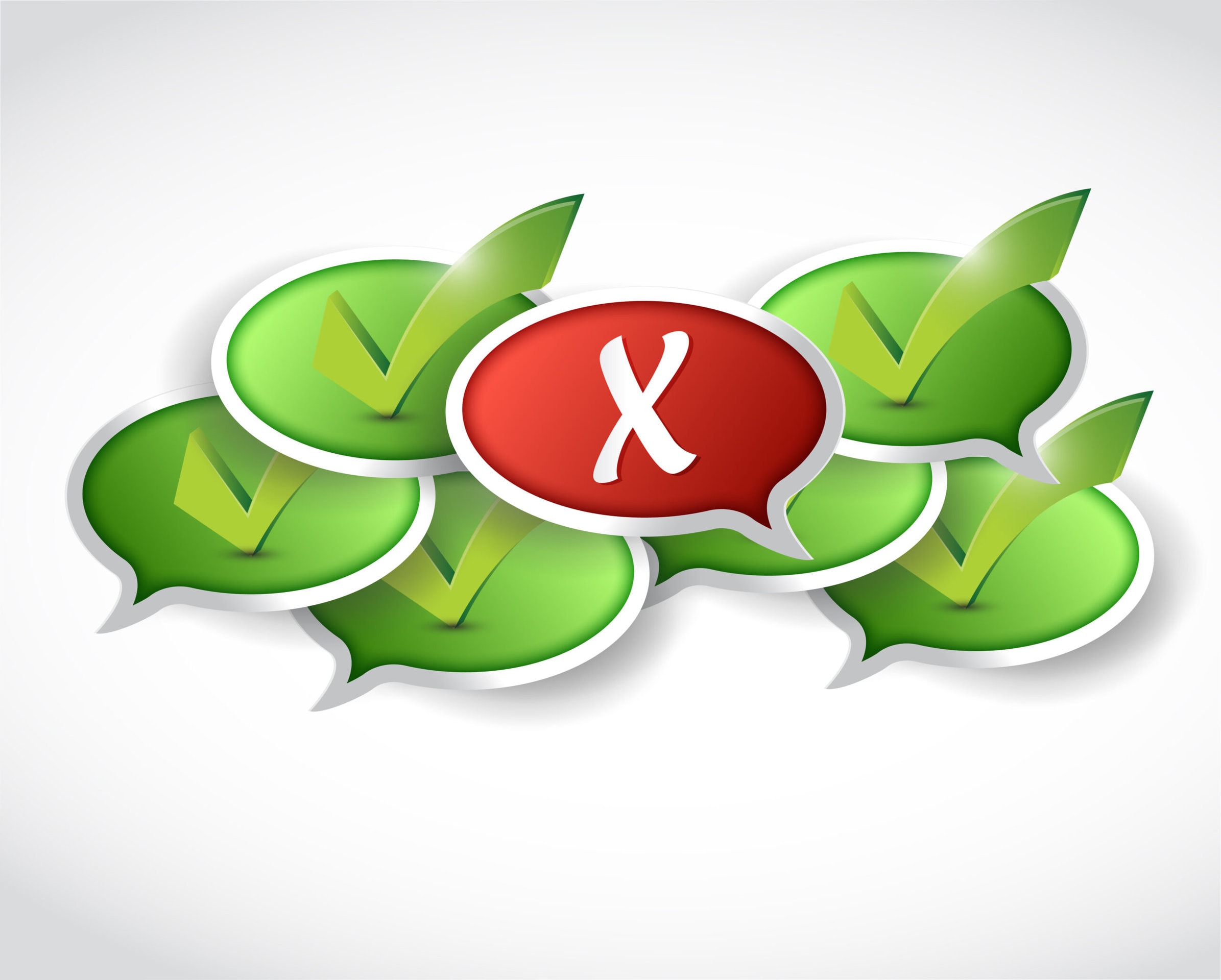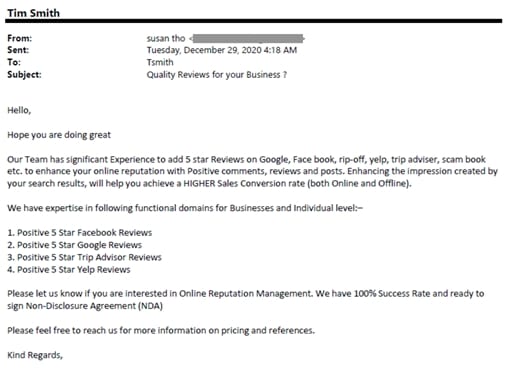The growth of fake reviews starts with online review trends. According to the Brightlocal Local Consumer Review Survey, 82% of all consumers check the reviews before trusting a local business in 2020.
This means that online reviews—the views of strangers on the internet—are just as reliable for consumers as personal recommendations from friends and family (perhaps even more).

Recognizing the strength consumer reviews have to fuel online visibility and sales; it is hardly surprising that there is a thriving industry of fake ones.
Unfortunately, many businesses seem to have succumbed to the unethical technique of soliciting false reviews.
This trickery has become so ubiquitous in today’s congested cyberspace that business review sites like Amazon, Yelp, Facebook, Google, and even the Federal Trade Commission (FTC) have implemented protocols to reduce the influx of questionable reviews.
What is a Fake Review Anyway?
Before we get ahead of ourselves, let’s start by clarifying what qualifies as a “fake” review.
Fake reviews are explicitly designed to deceive the buyer’s thought processes, giving them a misleading impression of the point of purchase. They are often generated by bots or “review farms” that profit by hiring people to write bogus reviews. This is precisely the opposite of an actual consumer’s honest and impartial opinion of a product, service, or business.
Companies typically invest in fake positive reviews to inspire consumer confidence and loyalty. This may occur when launching a new business, program, or product that has no reviews yet. Or, it may be a tactic by a poorly rated business to appear better than its customers have rated it. Some companies also source negative reviews to tarnish their competitors’ online reputations.
There’s no way of telling what percentage of reviews today are fake. But I sometimes wonder if the problem isn’t extremely widespread since I rarely see any rated business or product today with less than four stars.
How do Fake Reviews Work?
It is not hard for you to get fake reviews. Even if you are a new company that has never done any work, you can purchase hundreds of stellar reviews in a few days.

All you need to do is go online and type in the keyword “Buy Reviews.”
Hundreds of service providers offer “5-star review services,” promising “100% real people or real users.”
You can also get fake reviews via private Facebook groups or the “Wild West” of the Internet, as we like to call it.
False reviews are cheap, too–running you anywhere between $5 and $10. Once you complete your service order, the service provider will post fake reviews on your business pages local listings, and review website profiles.
Are Dishonest Reviews Worth it?
Fake reviews are a disservice to both the business resorting to them and the consumers who buy into them. Having said that, fake reviews work—they would not be around if nothing were to be gained from them.
But while some doctored reviews work, they only work temporarily. Once a business has set high hopes for its consumers through this dubious tactic, it must deliver!
A glowing review would make the consumer expect a certain quality of service from the company. And if the company fails to deliver on those over-inflated expectations, they will generate many [real] negative reviews.
Also, remember that business review sites deem many reviews posted in quick succession a red flag. If caught, you might lose your listing or, worse, get slapped with hefty penalties. The fallout of being flagged for fake reviews is not worth what they offer.
Lastly, no matter what those “5-star review services claim,” your target customers can often tell if a review posted on your profile is fake. Today’s consumers are intelligent and savvy, and it is easy for them to discern that a generic, overly positive review does not feel authentic.
How Customers Can Spot a False Review
Buyers are pretty good at spotting fake reviews. But what tends to sway their judgment about whether a review is real or paid? Let’s explore the three most common “tells” of a fake review.

Example of a spammed email offering to provide fake reviews. We received several identical emails from different addresses within a 3-day period.
1. Not Real People
One of the easiest ways to tell a fake review is by identifying the reviewer’s characteristics.
As you might expect, the “100% real people or real users” fake review service providers claim to use is untrue. Fake reviews usually come from new and unverified accounts with few details and little or no history of other reviews.
These accounts either do not have a display image, or they have one pulled from Getty Images or Shutterstock. It is not rare to encounter a fake reviewer with a generic name using a celebrity picture as their display image to rave about a brand or their product/service online.
2. Generic One-Sided Praise and Broken English
You cannot possibly expect a fake review service provider to make a serious effort to post reviews that sound genuine, can you?
Well, that is the reason why fake reviewers end up posting relatively short reviews with fewer subjective and anecdotal details. They all have a similar headline (such as “Amazing product!”) and the same cookie-cutter descriptions that highlight the attributes and features of the product/service.
Because many fake reviews are outsourced to content farms in foreign countries, they are poorly constructed and often have typos and grammatical errors.
3. Spike in Reviews during a very Short Time Frame
Fake reviewers typically post hundreds of positive reviews over a very short time. Let’s say that if your business starts to get a sudden influx of excellent online feedback, your consumers would know it is a targeted campaign to add new fake reviews.
The best thing you can do to build your online reputation is to BE worthy of good reviews. But this requires a commitment to high quality and good service. It also involves learning to listen to customers—especially when they aren’t happy. As a marketing consultant, I have learned that customer complaints are one of the best ways to improve your business because your customer is (literally) telling you how to improve.
If you put in some effort and do honest, good work, positive, authentic reviews will follow.



